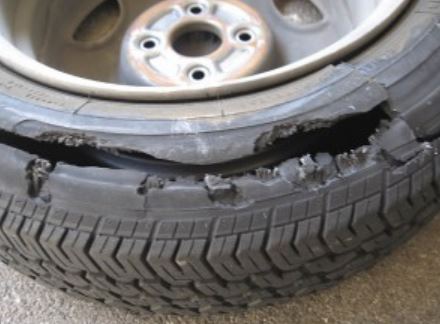Regular vehicle maintenance does a lot more than just ensure that your vehicle runs smoothly. It can also help stop hazardous equipment issues that will eventually cause accidents and breakdowns. If you were injured in a Virginia car accident that was caused by a tire blowout, the Virginia Beach personal injury lawyers at Shapiro, Washburn & Sharp can help.
Car accident cases like these can be difficult to prove. You deserve to have aggressive and knowledgeable legal representation on your side so you can collect the financial compensation you are entitled to.
Why is Tire Inflation Important?
Properly inflated tires are an important part of driving safety. A report published by the National Highway Traffic Safety Administration shows that tire-related accidents resulted in 664 vehicular fatalities in 2020.
Most people who do not know a lot about vehicle maintenance, or just tires in particular, often think that tire blowouts are caused by overinflation when it’s the opposite that is true. A study also conducted by the NHTSA reveals that underinflation is the number one cause of tire failures. While an underinflated might not seem like a huge issue, it is actually extremely perilous.
A tire that is underinflated is more likely to sag. They often lose so much of their shape that they can no longer support the weight of the vehicle. When the amount of pressure in a tire is too low, more of the surface area comes into contact with the roadway, and more friction is produced. This extra friction results in overheating, a factor that contributes to blowouts, tread separation, and undue wear and tear.
What Happens if a Tire Is Underinflated?
Underinflated tires can lead to many different issues, including:
Blowouts
A tire blowout occurs due to a sudden and almost immediate loss of air pressure. They are usually followed by a loud bang or pop that sounds a bit like an explosion. Fragments of the ripped tire could strike pedestrians, cyclists, children, and even other vehicles, causing the driver to lose control. Serious tire-related accidents take place most often in areas with heavy traffic and on roads with high speed limits.
Poor Gas Consumption
Your tire’s inflation has a direct impact on your vehicle’s overall consumption of fuel. According to the United States Department of Energy, every 1% drop in tire pressure causes a 0.03% drop in fuel economy. Although that doesn’t seem like very much, all of that extra gas will add up in due course.
Improper Handing
A car that has underinflated tires is going to be hard to control. Simple driving maneuvers such as stopping, turning, and handling curves smoothly are much more difficult when the tires are not in optimal condition. In a scenario where an accident is impending, the driver will be less capable of taking evasive measures to circumvent a potential crash if their tires are underinflated.
Damage to the Vehicle
Underinflated tires place additional pressure on the car’s suspension and chassis, which increases the potential for damage to important systems and equipment. Brake lines, wheels, fenders, and rotors must work harder when a car’s tires are underinflated. This makes the driver vulnerable to expensive, and avoidable, repairs.
Underinflated, defective, and damaged tires compel several thousand serious motor vehicle accidents, injuries, and deaths each year. If a driver was aware that their tires were not safe and failed to have them replaced or repaired, they could be found negligent and held liable for any damages if they are involved in an accident.
Did an Improperly Inflated Tire Cause Your Virginia Car Accident?
If you were injured in an accident that was caused by poorly maintained or defective tires, our Virginia car accident attorneys can help. The personal injury team at Shapiro, Washburn & Sharp will defend your right to compensation and build the strongest case possible on your behalf. Schedule a free consultation by calling (833) 997-1774 or by filling out the contact form on our website.
